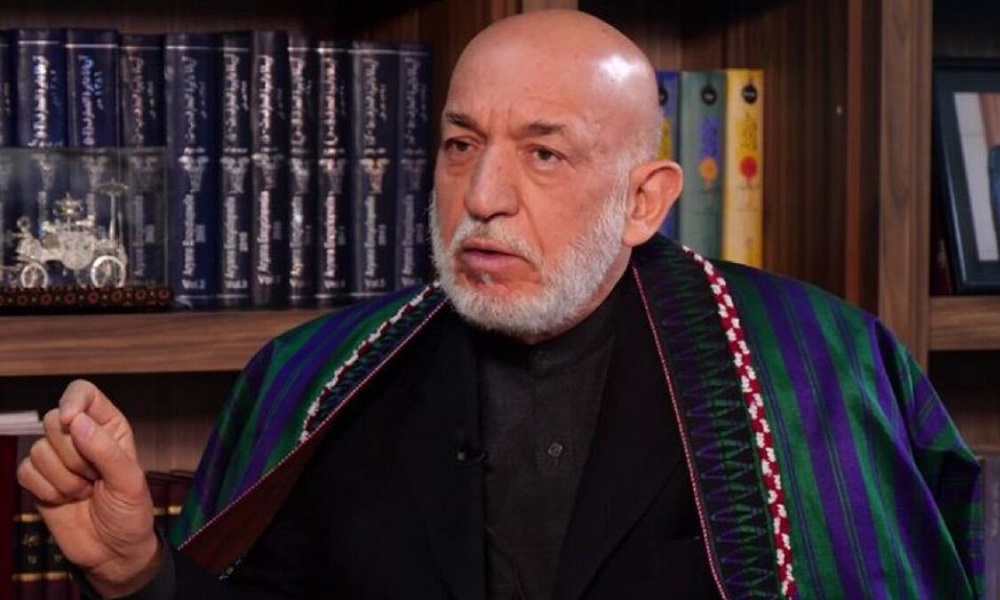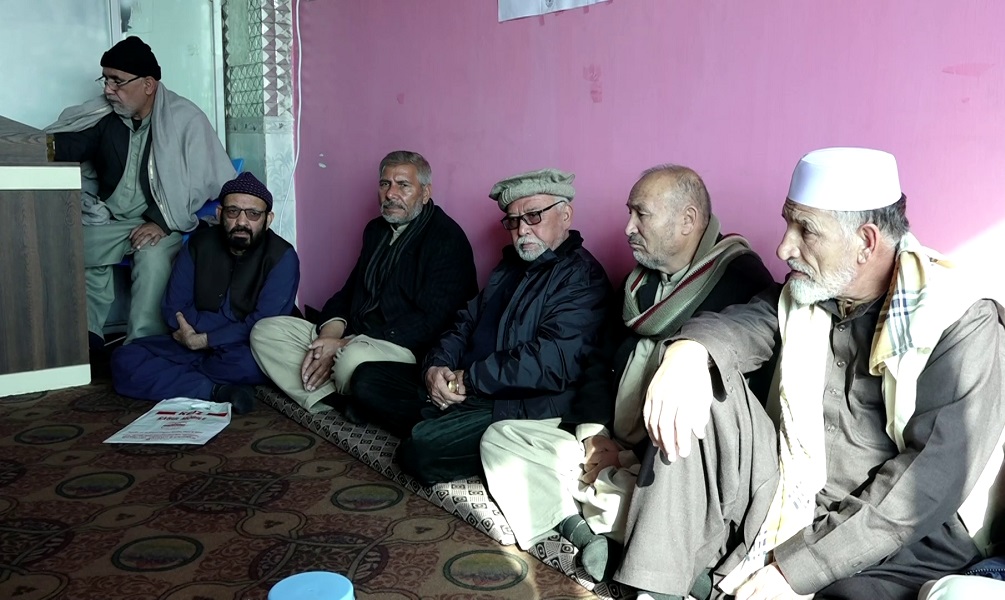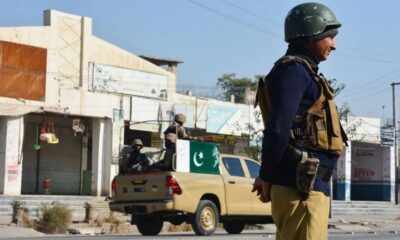Latest News
Israel strikes on Lebanon kill 40 people around Baalbek, health ministry says
Israeli strikes on Baalbek and the Bekaa Valley killed 40 people and wounded 53, the health ministry said. The Israeli military did not comment.

Israeli strikes on Lebanon killed 40 people around the eastern city of Baalbek in the Bekaa Valley on Wednesday, according to the country's health ministry, and at dusk more strikes hit Beirut's southern suburbs, Reuters reported.
Israel and Iran-backed Hezbollah have exchanged fire for over a year in parallel with the Gaza war but fighting has escalated since late September, with Israeli troops intensifying bombing of Lebanon's south and east and making ground incursions into border villages.
Israeli strikes on Baalbek and the Bekaa Valley killed 40 people and wounded 53, the health ministry said. The Israeli military did not comment.
Israel has repeatedly battered strongholds of Lebanese armed group Hezbollah in the southern suburbs of the capital Beirut.
The Israeli military ordered residents in the southern suburbs to evacuate several locations on Wednesday. Two waves of bombing followed, one late Wednesday and another early Thursday.
Lebanon's Al Jadeed TV reported there were at least four strikes on Thursday. There was no immediate report of casualties or details on what was hit.
Hezbollah secretary general Naim Qassem on Wednesday said he did not believe that political action would bring an end to hostilities, read the report.
He said there could be a road to indirect negotiations if Israel stopped its attacks.
"When the enemy decides to stop the aggression, there is a path for negotiations that we have clearly defined - indirect negotiations through the Lebanese state and speaker (of parliament Nabih) Berri," Qassem said.
U.S. diplomatic efforts to halt fighting between Israel and Hezbollah, which included a 60-day ceasefire proposal, faltered last week ahead of the U.S. election on Tuesday in which former President Donald Trump recaptured the White House.
More than 3,000 people have been killed in Israeli strikes on Lebanon over the last year, the vast majority in the past six weeks.
Lebanese rescuers scoured a destroyed apartment building in the town of Barja, south of Beirut, for bodies or survivors after an Israeli strike on Tuesday evening killed 20 people there, Lebanon's health ministry said.
Moussa Zahran, who lived on one of the upper floors of the building, returned to sift through the ruins of his home. His burned feet were wrapped in gauze and his son and wife were in hospital after being wounded in the strike.
"These rocks that you see here weigh 100 kilos; they fell on a 13-kilo kid," he said, referring to his son and the apartment wall that collapsed on him during the strike.
It was not clear whether the strike targeted a member of Hezbollah. There was no evacuation warning ahead of the air raid.
Hezbollah said on Wednesday it had fired missiles at an Israeli military base near Ben Gurion Airport. Israeli media reported a rocket had landed near the airport.
Later, the Israeli military said dozens of projectiles had crossed into Israel from Lebanon, some of which were intercepted, Reuters reported.
Efforts to bring a diplomatic end to the conflict have stalled. Israeli Prime Minister Benjamin Netanyahu on Tuesday appointed Israel Katz as defence minister, who vowed to defeat Hezbollah so people displaced from northern Israel could return home.
Berri - a Hezbollah ally and diplomatic interlocutor - met the U.S. and Saudi ambassadors to Lebanon on Wednesday to discuss political developments, his office said, without providing further details.
Lebanon's caretaker prime minister, meanwhile, congratulated the U.S. president-elect.
Netanyahu hailed Trump's election, while senior Hamas official Sami Abu Zuhri said Trump would be tested on his statements that he can stop the Gaza war in hours as president.
Latest News
G7 envoys urge national dialogue for lasting stability in Afghanistan

Special Representatives of the Group of Seven (G7), including the European Union, have emphasized the importance of a national dialogue for achieving long-term stability in Afghanistan.
Following a meeting on Afghanistan in Geneva, Switzerland, G7 special envoys issued a joint statement calling for the restoration of women's rights and urging the Islamic Emirate to fight terrorism.
The statement reads: "Achieving sustainable peace and stability requires credible governance that represents all segments of Afghan society."
The representatives also expressed concern over the IEA’s decision to ban girls from attending medical institutes, warning that it will have devastating consequences for the citizens, particularly mothers and their infants.
The statement described this ban as unacceptable and called on the Afghan authorities to lift it immediately.
Earlier, countries and international organizations had called for the removal of restrictions on the education and employment of women and girls, emphasizing the need for a national dialogue.
In response to these concerns, IEA has repeatedly stated that it will not allow interference in the internal affairs of the country.
The G7 special envoys also expressed their concern about the recent terrorist attacks in Kabul and the surrounding region, warning that terrorism remains a serious threat to Afghanistan's security. They confirmed the actions of the IEA against Daesh but stressed the need for more decisive measures.
Latest News
Afghanistan’s bright future lies in educating girls: Karzai

Hamid Karzai, the former president of Afghanistan, says the demand of Afghan girls for the reopening of schools and universities is their fundamental right and adds that Afghanistan cannot have a bright future without ensuring access to education for girls.
In a statement on his X (formerly Twitter) account, Karzai said: "The demand and voice of our country’s girls for education and knowledge is a rightful one and crucial for a prosperous Afghanistan."
He further emphasized, "Empowering the youth—both girls and boys—is the only way to achieve self-reliance, break the cycle of poverty, and drive the development and prosperity of society."
Karzai underscored that education is vital for Afghanistan’s growth and development, expressing hope that the doors of schools and universities for girls will be reopened as soon as possible.
Latest News
IEA to set up special courts to address pensions

Mawlawi Hebatullah Akhundzada, the supreme leader of the Islamic Emirate of Afghanistan (IEA), has issued a decree to establish special courts to address pensions, Bakhtar news agency reported on Saturday.
According to the decree, the courts must confirm and process pensions in accordance with Sharia and law.
Pensioners have repeatedly voiced concern over delay in payment, saying that their financial challenges are growing.
Earlier this year, IEA's supreme leader banned money being deducted from salaries of government employees for pensions.
He also requested information on the tenure of employees and the total amount deducted from salaries for pensions.
-

 Sport5 days ago
Sport5 days agoATN once again seals deal to broadcast upcoming IPL across Afghanistan
-

 Sport5 days ago
Sport5 days agoLanka T10: All three matches abandoned due to rain
-

 Latest News5 days ago
Latest News5 days agoIndia hoping to import coal and marble from Afghanistan
-

 Sport4 days ago
Sport4 days agoZimbabwe’s opening ODI against Afghanistan abandoned
-

 Latest News5 days ago
Latest News5 days agoFuel prices rise in Herat as winter approaches
-

 Latest News5 days ago
Latest News5 days agoJapan announces $27.5 million aid package to Afghanistan
-

 Latest News3 days ago
Latest News3 days agoTwo horror accidents on Kabul-Kandahar highway leave 52 dead
-

 Latest News1 day ago
Latest News1 day agoAfghan men must stand with women to support viable future of country: US envoy
























